Preventing and Managing Risk in Communities that are Prone to Disaster and Strengthening Their Resilience to Future Shocks
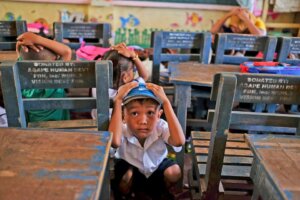

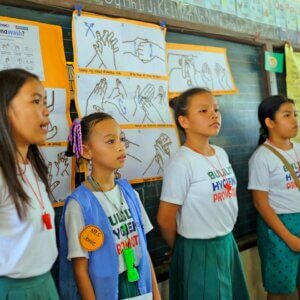
“It is never easy to live in tents. You’re not able to do the things you used to do, and it’s really a different feeling comparted to being in the comfort of your own home,” says Nora.
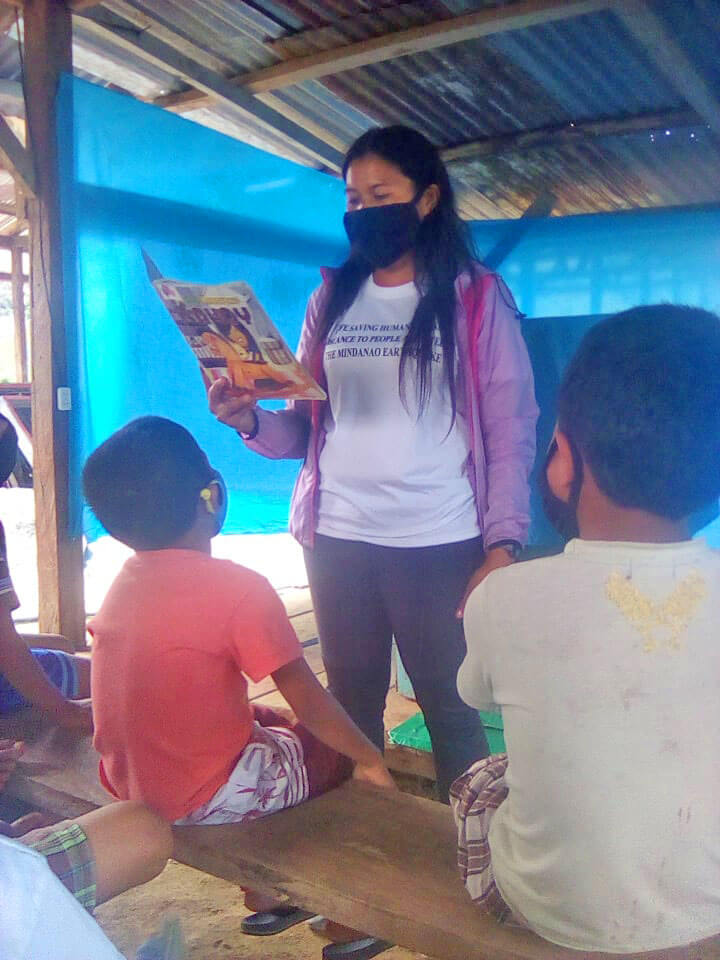
(Photo by Debbie Olivo for Action Against Hunger)
It wasn’t until Nora and her fellow volunteers applied mental health and psychosocial (MHPSS) care practices that insights in the community started becoming more positive. “The PSS sessions conducted in our respective assigned areas rekindled the social involvement between members of the community.” People appreciated the things they’ve learned from the sessions while at the same time enjoying the company of other parents and adults.
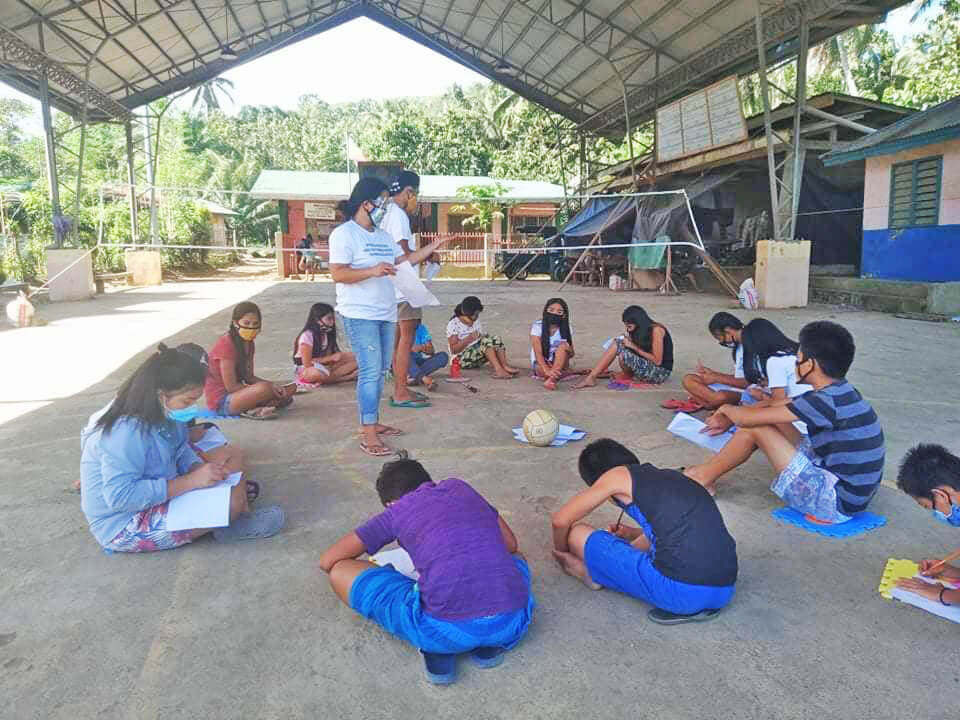
(Photo by Debbie Olivo for Action Against Hunger)
Together with our Earthquake Response Team, volunteers also provided the participants with education and information on nutrition & health.
Nora and her fellow volunteers were trained on a series of community-based PSS Sessions conducted last February by Action Against Hunger Philippines and funded by the European Union. The activity aimed to give equal importance to mental and social health among internally displaced persons (IDPs).
Life-saving Humanitarian Assistance to People Affected by the Mindanao Earthquake is funded by the European Union, and implemented by Action Against Hunger Philippines, CARE Philippines, and ACCORD Incorporated.
Written by Debbie Olivo.
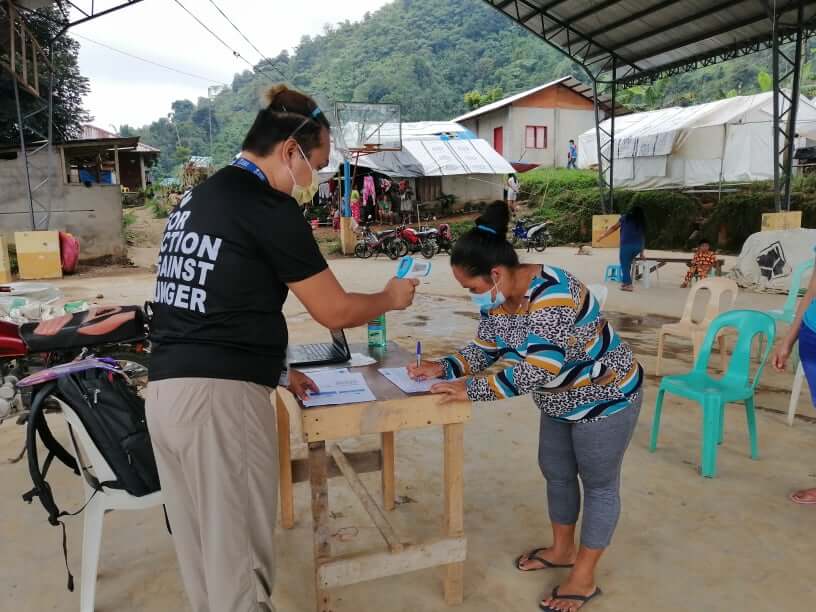
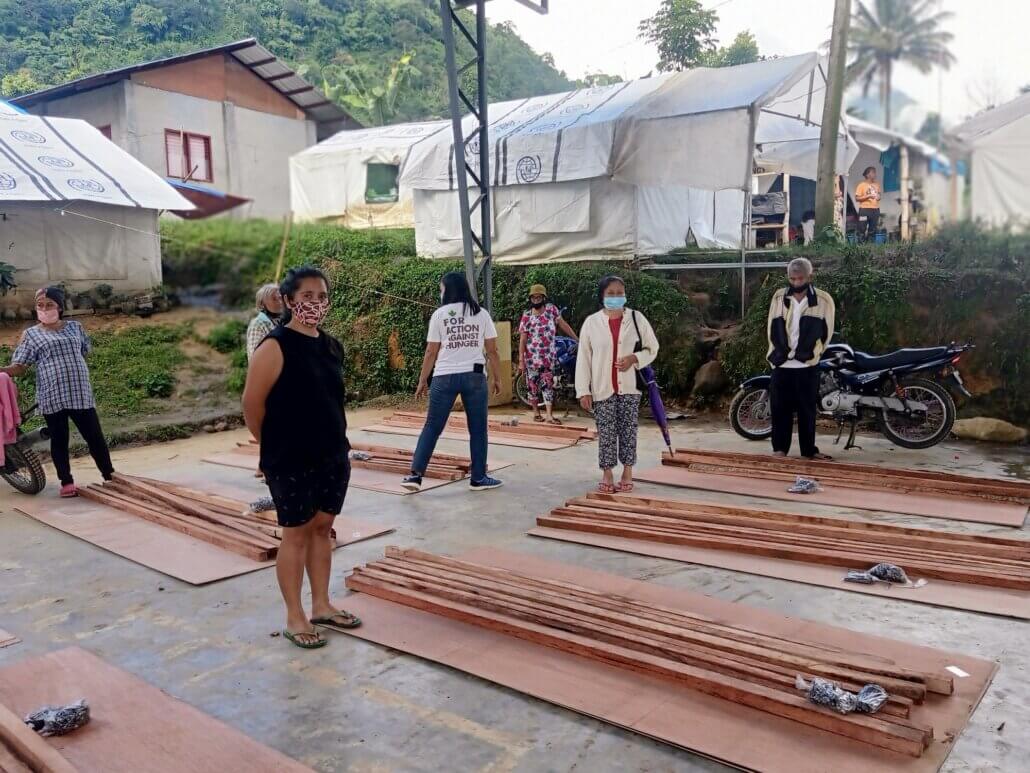
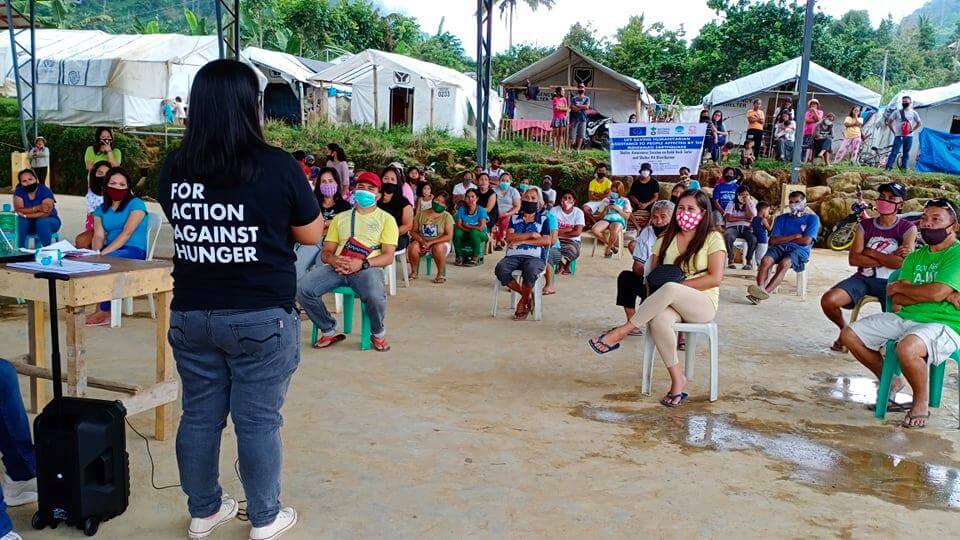
Part of our initiatives in preventing the spread of the coronavirus is by strengthening our risk communication and community engagement efforts which have reached more than 200,000 people.
Wherever we work, we motivate families and communities to uphold proper hygiene and sanitation practices through our hygiene promotion sessions, allowing them to understand the value of hygiene in fighting infectious diseases, as well as hunger and malnutrition.
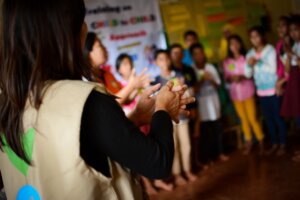
𝗬𝗼𝘂 𝘁𝗼𝗼 𝗰𝗮𝗻 𝘁𝗮𝗸𝗲 𝗽𝗮𝗿𝘁 𝗶𝗻 𝗼𝘂𝗿 𝗮𝗱𝘃𝗼𝗰𝗮𝗰𝘆 𝗯𝘆 𝗱𝗼𝗻𝗮𝘁𝗶𝗻𝗴: https://actionagainsthunger.ph/call-for-donations/
Written by Joayra Gem Balagtas for Action Against Hunger
82-year old Pedro Sanchez has been living alone in the evacuation site in Perez, Kidapawan ever since the Mindanao earthquakes last year. All three of his children now have families of their own. They would sometimes send him financial help, but it is usually not enough to support Pedro since their families have needs as well.
More than a year ago, Pedro was diagnosed with diabetes and suffered a stroke, and he hasn’t been able to walk ever since. He can hardly hear as well, which he says could probably be because of his old age.
Pedro relies on his good neighbors for assistance in taking care of himself. Whenever he has money, he asks his neighbors to buy him supplies and food. They also volunteer to do his laundry and other chores that he has trouble doing by himself. However, there are days where his neighbors aren’t around to help him, so no matter how challenging, he does these tasks on his own.
Last September 21, our 𝗘𝗮𝗿𝘁𝗵𝗾𝘂𝗮𝗸𝗲 𝗘𝗺𝗲𝗿𝗴𝗲𝗻𝗰𝘆 𝗥𝗲𝘀𝗽𝗼𝗻𝘀𝗲 𝗧𝗲𝗮𝗺 provided Pedro a wheelchair, to help him go through his daily activities with more ease. Teary-eyed, Pedro expressed his gratitude as he saw the wheelchair being pulled towards his tent.
Pedro is one of the 200 target beneficiaries to receive health and protection assistance as part of our 𝗹𝗶𝗳𝗲-𝘀𝗮𝘃𝗶𝗻𝗴 𝗵𝘂𝗺𝗮𝗻𝗶𝘁𝗮𝗿𝗶𝗮𝗻 𝗮𝘀𝘀𝗶𝘀𝘁𝗮𝗻𝗰𝗲 𝘁𝗼 𝘁𝗵𝗲 𝗽𝗲𝗼𝗽𝗹𝗲 𝗮𝗳𝗳𝗲𝗰𝘁𝗲𝗱 𝗯𝘆 𝘁𝗵𝗲 #𝗠𝗶𝗻𝗱𝗮𝗻𝗮𝗼𝗘𝗮𝗿𝘁𝗵𝗾𝘂𝗮𝗸𝗲 which is funded by the EU Civil Protection & Humanitarian Aid – ECHO.
To find out more on our Emergency Responses in the Philippines, go to:
https://actionagainsthunger.ph/what-we-do/…
Aldin Beta-A is more than a DRR Supervisor for our MOVE UP 3 Project, he is one of our Real-Life Heroes.
After spearheading the Resilient Livelihood Support turnover for 50 families in Marikina last September 18, he shares his experience as a humanitarian worker and working tirelessly to help others amidst the pandemic.
When did you start being involved in development work?
My initial employment was focused on ancestral domain management after I graduated back in 2000. After that, I was mostly involved in the agricultural field and was also part of an earthquake rehabilitation program. In 2006, I was deployed in Southern Luzon, in Aurora, for a community disaster risk reduction program. Thereafter, I was more involved on humanitarian responses during in 2013 until now.
What were your struggles as a humanitarian worker, especially now during the pandemic?
Well, the normal struggle is how to expedite the process given that time is limited, and especially now that transportation between areas have become challenging. The common way we communicate now is through non-face-to-face interactions which can be challenging when it comes to decision-making.
What motivates you to continue a career in humanitarian work?
As a humanitarian worker, it is common in our DNA to help others and doing no harm, so that motivates me to help others even if it needs more patience or innovative ways of getting things done.
What are your hopes and dreams for the future?
My hope for the future is for us to continuously adapt. I see that we constantly change as a society, even though we experience many hazards or risks. I see that as we can adapt to these different disasters and emergencies, and cope as human beings.
Moving Urban Poor Communities Toward Resilience (MOVE UP 3) is an urban disaster risk reduction (DRR) project which aims to build resilience among urban poor communities in Mindanao. With funding from the European Union, MOVE UP 3 is implemented by a consortium of partners consisting of Action Against Hunger Philippines, Plan International Philippines, CARE Philippines, and ACCORD Incorporated.
Prior to the pandemic, the Philippines was already one of the top 10 countries worldwide with the highest number of stunted children. This is alarming since the risk of mortality among undernourished children, increases 15-fold if they develop pneumonia.
Because of this, we rolled out nutrition-sensitization trainings for our local government partners and health volunteers who are our allies in ensuring the health and safety of the communities we work with.
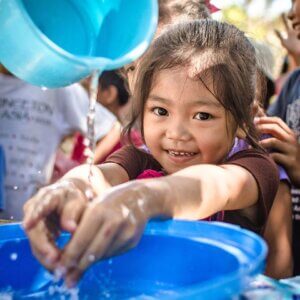
Learn more about our programs on nutrition & health: https://actionagainsthunger.ph/what-we-do/#nutrition-and-health
#TogetherAgainstCOVID19, #COVID19PH, #COVID19, #EndHungerPH,
#nutrition, #health, #malnutrition, #childhunger, #filipinochildren, #philippines, #developmentwork, #humanitarianwork, #frontliners